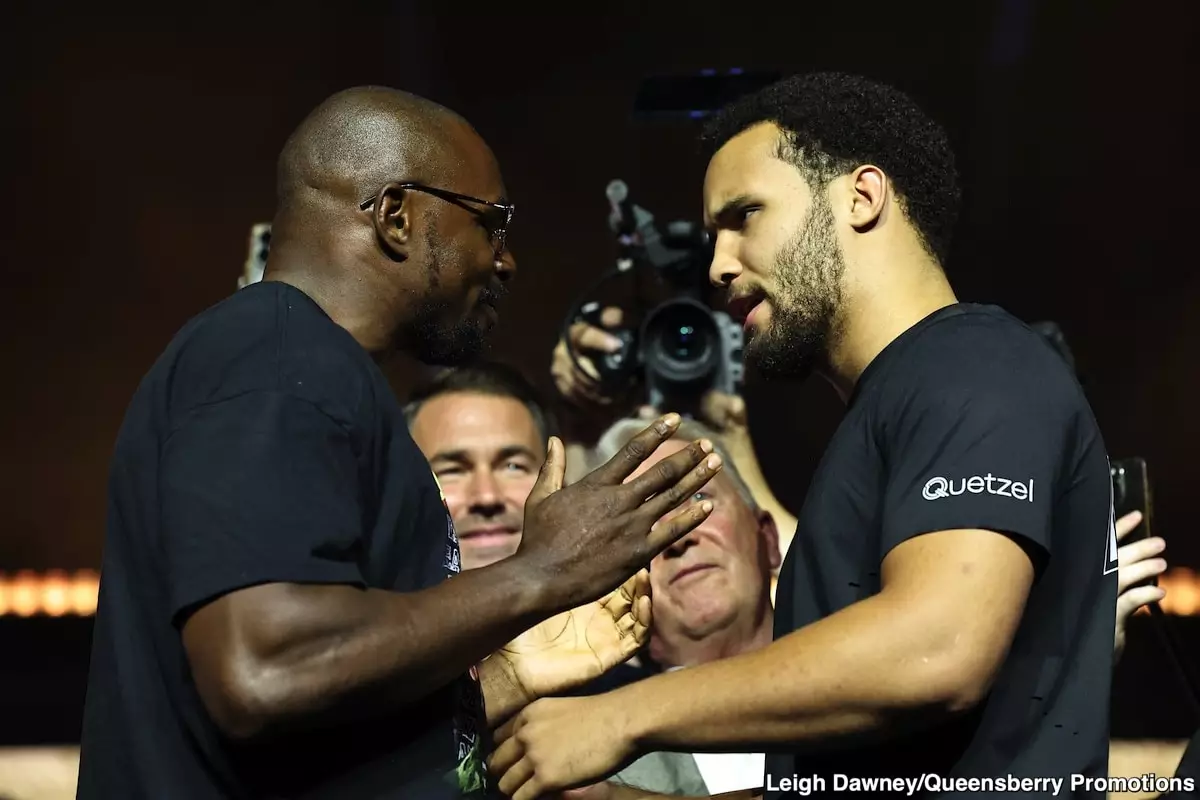Derek Chisora, a seasoned heavyweight with a career marked by resilience and grit, offers a compelling perspective on the upcoming showdown between Dillian Whyte and Moses Itauma. Initially, Chisora believed that the young, formidable Itauma would assert dominance and secure victory via knockout. His confidence stemmed from the youthful energy and raw talent that define Itauma’s rising trajectory. However, witnessing How Whyte has transformed recently, especially with his rigorous training regime, has prompted Chisora to reconsider. The veteran recognizes that in boxing, appearance and preparation often distort expectations—what matters most is the resilience that fighters bring into the ring.
Chisora’s shifting opinion underscores a core truth: experience and determination can sometimes overturn the odds, especially when a fighter like Whyte displays renewed vigor. It reveals that even at 37, with a career of ups and downs, Whyte remains dangerous—perhaps more so than critics give him credit for. Chisora’s commentary becomes a testament to the unpredictable nature of boxing, where the mental and physical state, combined with tactical adjustments, can redefine outcomes.
The Question of Timing and Readiness
A persistent debate surrounds whether Moses Itauma is stepping into the ring too soon. Despite his impressive potential, the question lingers: is this stage too big for the 20-year-old prodigy? Growth in heavyweight boxing often involves learning through trial by fire, but sometimes premature exposure can backfire. Understanding Whyte’s experience in the ring—the grit, the resilience, the ability to absorb punishment and turn fights on their head—is what makes him a formidable obstacle.
Chisora’s acknowledgment of Whyte’s current prime form, shown through his dedication and physical condition, raises the stakes. If Whyte manages to beat Itauma, it could cement his reputation as a true comeback story and perhaps set the stage for a future title run. Conversely, for Itauma, a loss at this juncture might be a stepping stone if he learns from the experience. As a veteran, Chisora doubts whether this clash is a fair trial for the young contender’s capabilities. However, sometimes talent unleashed at the right moment can shatter expectations, and in boxing, what seems premature often becomes legendary.
Redemption and the Power of Legacy
For Chisora, the upcoming fight isn’t just about potential victory or defeat; it’s about shaping his legacy. With rumors swirling about his final act in boxing, Chisora’s willingness to face either winner—should the circumstances align—speaks to his relentless spirit. His declaration that he would consider fighting Whyte again if he wins against Itauma reflects a fighter who values the sport above all else.
Perhaps what makes this story captivating is the possibility of a third encounter between Whyte and Chisora—each fight steeped in history and mutual respect. It’s a saga of comradeship, rivalry, and the unyielding desire to leave a lasting impression. No matter the outcome, these battles embody the essence of boxing’s romantic notion: fighters pushing their limits, battling not just each other, but also the boundaries of their own resilience.
In the end, this fight in Saudi Arabia encapsulates more than just the promise of action; it symbolizes the relentless pursuit of greatness, the unpredictability of timing, and the enduring spirit of fighters who refuse to fade quietly into the background.


Leave a Reply